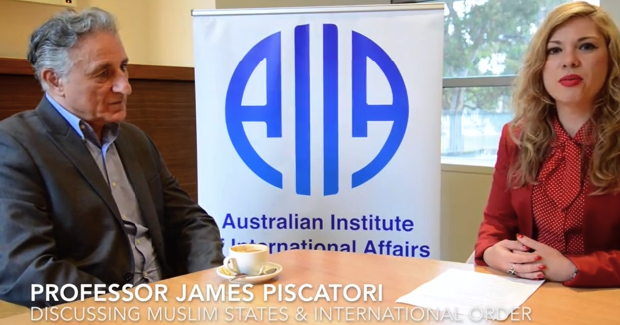Islam and the International Order

Islam is sometimes referred to as being incompatibile with the international state system. This belief is based on events such as the 11 September attacks and the emergence of Islamic State. But how much is this belief based on evidence?
In fact, Islamic tradition contains features that are synonymous with the international order, such as the importance of treaties. Moreover, Muslim states have, like most others, necessarily engaged effectively with the international order for their own self interest.
Despite these facts, the thesis of a ‘clash of civilisations‘ persists. Is there any merit to this argument? And what is the impact of such a belief on the Muslim world?
Professor James Piscatori is from the Centre for Arab and Islamic Studies at the Australian National University. This interview was conducted prior to a conference titled ‘Islam Today: Politics, State and Society‘. It took place on 13-14 October 2016 and was jointly hosted by the Centre for Muslim States and Societies and the AIIA for WA.
Professor James Piscatori is a leading scholar of political Islam at the Centre for Arab and Islamic Studies at the Australian National University. He has been a research fellow at the Royal Institute of International Affairs in London and a senior fellow at the Council of Foreign Relations in New York
Interviewed by Flavia Bellieni Zimmermann
Filmed by Nancye Miles-Tweedie


